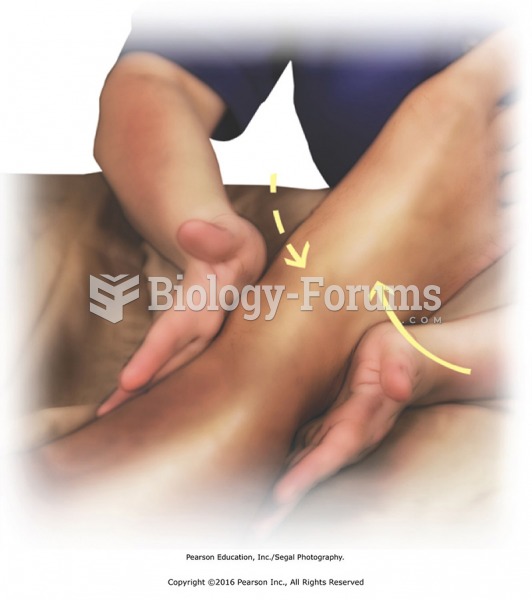|
|
|
The first oncogene was discovered in 1970 and was termed SRC (pronounced "SARK").
Over time, chronic hepatitis B virus and hepatitis C virus infections can progress to advanced liver disease, liver failure, and hepatocellular carcinoma. Unlike other forms, more than 80% of hepatitis C infections become chronic and lead to liver disease. When combined with hepatitis B, hepatitis C now accounts for 75% percent of all cases of liver disease around the world. Liver failure caused by hepatitis C is now leading cause of liver transplants in the United States.
Elderly adults are living longer, and causes of death are shifting. At the same time, autopsy rates are at or near their lowest in history.
Cancer has been around as long as humankind, but only in the second half of the twentieth century did the number of cancer cases explode.
About 80% of major fungal systemic infections are due to Candida albicans. Another form, Candida peritonitis, occurs most often in postoperative patients. A rare disease, Candida meningitis, may follow leukemia, kidney transplant, other immunosuppressed factors, or when suffering from Candida septicemia.
 Create a soapy lather with the hands and spread the soap up to the elbows. Liquid soap is preferred. ...
Create a soapy lather with the hands and spread the soap up to the elbows. Liquid soap is preferred. ...
 Mobilize the ankle using the heels of the hands. Place the heels of the hands just under the ankle ...
Mobilize the ankle using the heels of the hands. Place the heels of the hands just under the ankle ...
 Apply petrissage to center of abdomen. Place hands palm over palm in center of the abdomen. Create ...
Apply petrissage to center of abdomen. Place hands palm over palm in center of the abdomen. Create ...




